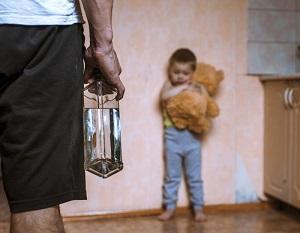Protecting Your Child From an Alcoholic Parent
 If you are a divorced or unmarried parent whose child spends time with your former partner, you undoubtedly have concerns that they are being well-cared for and protected. This is hard enough when there is no rational reason to suspect a problem. When your child’s other parent is battling issues with alcohol use, however, the stakes get very high, very quickly. While you may not be able to control the other parent’s behavior, parenting style, or lifestyle choices, there are ways that you can ensure that your child is protected.
If you are a divorced or unmarried parent whose child spends time with your former partner, you undoubtedly have concerns that they are being well-cared for and protected. This is hard enough when there is no rational reason to suspect a problem. When your child’s other parent is battling issues with alcohol use, however, the stakes get very high, very quickly. While you may not be able to control the other parent’s behavior, parenting style, or lifestyle choices, there are ways that you can ensure that your child is protected.
Determine the Scope of the Problem
The first thing you will need to do is determine how serious the other parent’s problem is or could be. One good way of estimating this is by considering how you learned about the possible issue. Was alcohol a problem for him or her during your relationship? If so, was it simply a need to drink or was it a binge-drinking problem? If you have heard rumors from friends or have seen on social media that the other parent is out partying from time to time, you will need to look deeper. If, on the other hand, your child tells you that the other parent had too much to drink and passed out on the sofa while your child was still awake—and it happens regularly—you need to take action. Reports of drinking and driving with your child in the car must also be taken very seriously.
Take Aggressive Action
In most cases, you should not attempt to amend or violate your parenting agreement or parenting time plan without the court’s approval. An exception may be appropriate if you believe that your child would be in imminent danger by spending time with the other parent. If you make a change to the plan or prevent your ex from exercising parenting, you should notify the court of your actions and your reasons. At the same time, you can file for a parenting time restriction against the other parent.
If the court determines that your spouse’s alcohol issue present a serious danger to the child’s physical, mental, emotional, or moral health, restrictions may be placed on his or her parenting time. The court may order the other parent to abstain from alcohol for a period of time leading up to each visit with the child and from possessing or consuming alcohol in the child’s presence. The other parent may also be ordered to undergo alcohol abuse treatment or counseling at the risk of losing additional parental rights.
Seek Legal Guidance
When abused, alcohol can destroy families and ruin lives. Do not let it happen to your child. Contact an experienced Lombard family law attorney at A. Traub & Associates today and let us help you protect your family. Call 630-426-0196 for a confidential consultation.
Sources:
http://www.ilga.gov/legislation/ilcs/ilcs4.asp?DocName=075000050HPt%2E+VI&ActID=2086&ChapterID=0&SeqStart=8350000&SeqEnd=10200000
https://www.psychologytoday.com/blog/heartache-hope/201109/divorced-kids-boundaries-the-alcoholicaddict-parent















